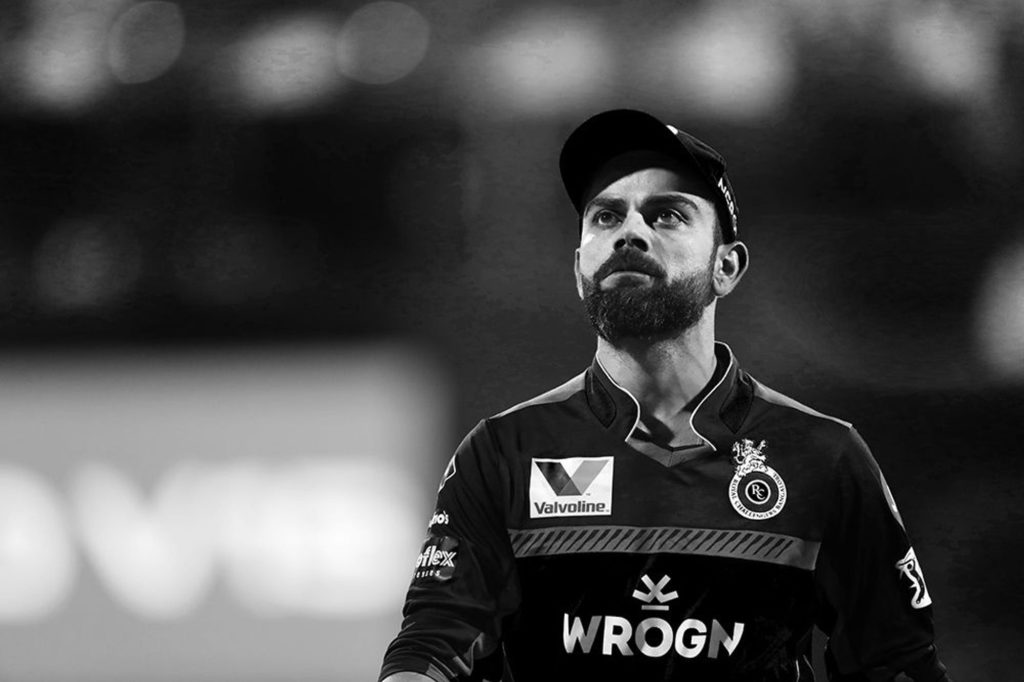Virat Kohli highlighted one of cricket’s greatest threats when he called for players to be consulted on scheduling during the pandemic. Bubble life has the potential to break cricketers and end careers, writes RYAN VREDE.
On Sunday, Kohli expressed fears about the mental health of professional players. He linked this directly to their movement being heavily restricted because of strict Covid-19 protocols in bio-secure environments.
Kohli, whose India side has played more cricket than any other international team since cricket resumed in mid-2020 (including players involved in the Indian Premier League), warned that selections could soon be made on the basis of players’ mental health.
‘Otherwise it’s going to be a case of whoever can last through difficult times like this plays, if not, then move away and someone else replaces that player. I don’t think it is healthy for a cricket system and cricket culture moving forward, which we definitely want to make stronger and stronger,’ he said.
I was dismayed at the response to Kohli’s suggestion on social media. Many made the age-old and grossly unsophisticated argument that Kohli, and those whose mental health he sought to highlight and preserve, have vast wealth earned from cricket and thus shouldn’t complain about their working conditions.
This is lazy thinking and an argument that, fundamentally, seeks to strip professional players of their humanity. It suggests that elite levels of sporting talent, and the associated rewards for the consistent exhibition of that talent, come as part of an agreed exchange that has athletes surrendering their humanity at the altar of fame.
Deconstructed to its simplest form, it instructs professional athletes to perform and not feel. Yet, to feel is human and to allow professional athletes the grace to feel is humane.
I was a young writer when ex-England batsman Marcus Trescothick was battling with depression and anxiety. I didn’t yet have the emotional maturity to process the significance of what was happening and how significant it was. I watched as he left two England tours, later explaining that he simply didn’t have the capacity to negotiate his mental struggles.
Privately, I processed Trescothick’s decision to leave in the same unsophisticated manner many sports fans today still do. It has been a hard learning curve since then, one that exposed my toxic conditioning around mental health.
But it has been liberating to mature to a point where I can have high measures of empathy for Trescothick and other cricketers who’ve spoken openly about their battles with depression and anxiety. More pertinently, I have a high measure of empathy for the mental turmoil being captive in prisons constructed by a pandemic can cause.
It is fair to expect professional athletes to be more resilient than your average Joe. Their jobs involve constant exposure to high degrees of pressure and a public profile that demands a thick skin. Their skin should callus, but the brain and heart never does. They melt gradually and eventually just disintegrate. In this context, an athlete would simply surrender to their anguish and be a shadow of the performer they once were.
Months in a bubble, where they’re separated from loved ones and robbed of the ability to relieve the accumulated stress by doing things you love, will do that to you. My brain and heart would melt, and I’m guessing that if you were honest with yourself, you’d admit that yours would too.
Of course, there will be no uniform response to the restrictions of a bio-secure environment. Some players would cope better than others when required to hop from one to another. That isn’t an indication of mental superiority.
There are a myriad factors that could account for these differing responses. For example, rookies may be excited by just being in an elite professional environment. Under these circumstances their experience of and tolerance for a restrictive bubble will be very different from a seasoned player. For these athletes, it may exasperate and amplify existing or underlying stress, pushing athletes to breaking point.
The conditions under which tours happen have changed, and Kohli highlighted that one of those changes has the potential to break some of the athletes who play this beautiful game.
Our response can’t be to dismiss those who at risk of breaking down as weak. They are not. They are human.







